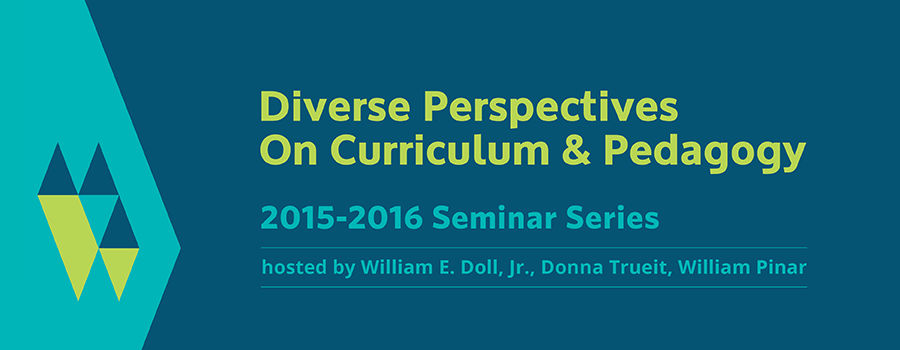Dr. E. Wayne Ross | Professor, EDCP
January 15, 2016
Short Bio:
E. Wayne Ross is Professor in the Department of Curriculum and Pedagogy at UBC. He has written and edited numerous books including: Critical Theories, Radical Pedagogies and Social Education (Sense, 2010); The Social Studies Curriculum: Purposes, Problems and Possibilities (4th Ed., SUNY Press, 2014) and Working for Social Justice Inside and Outside the Classroom (Peter Lang, 2016). He also edits the journals Critical Education, Workplace: A Journal for Academic Labor, and Cultural Logic.
Abstract:
In this talk I argue there is a disconnect between the rhetoric and reality of democracy in North America that subverts traditional approaches to democratic education. The tropes that have historically dominated the discourse on democracy and democratic education now amount to selling students (and ourselves) a lie about history and contemporary life. Our challenge is to re-imagine our roles as educators and find ways to create opportunities for students to create meaningful personal understandings of the world. Education is not about showing life to people, but bringing them to life. The aim is not getting students to listen to convincing lectures by experts, but getting them to speak for themselves in order to achieve, or at least strive for an equal degree of participation and a more democratic, equitable, and justice future. This requires a new mindset, something I call dangerous citizenship.


 Follow
Follow
The Fear Created by Precarious Existence in The Neoliberal World Discourages Critical Thinking / La peur créée par l’existence précaire dans le monde néolibéral décourage la pensée critique
E. Wayne Ross, co-editor of Critical Education, was recently interviewed about the impact of neoliberal capitalism on schools, universities, and education in general by Mohsen Abdelmoumen, an Algerian-based journalist.
Over the course of the interview he discussed a wide-range of issues, including: the fundamental conflict between neoliberalism and participatory democracy; the Global Education Reform Movement (GERM) and the possibilities of transforming schools and universities into forces for progressive change and, in particular, academic freedom and free speech on campus, schools as illusion factories, curriculum as propaganda; what it means to be a dangerous citizen; and the role of intellectuals/teachers as activists.
The interview has been published in English and French, links below.
The Fear Created by Precarious Existence in The Neoliberal World Discourages Critical Thinking – American Herald Tribune
La peur créée par l’existence précaire dans le monde néolibéral décourage la pensée critique – Algérie Résistance II
La peur créée par l’existence précaire dans le monde néolibéral décourage la pensée critique – Palestine Solidarité
Leave a comment
Posted in Publishing, Working condition
Tagged Academic freedom, Activism, citizenship education, Commentary, Corporate University, Critical Education, dangerous citizenship, Free speech, Government, higher education, interviews, neoliberalism, publishing, Research, Student Movement